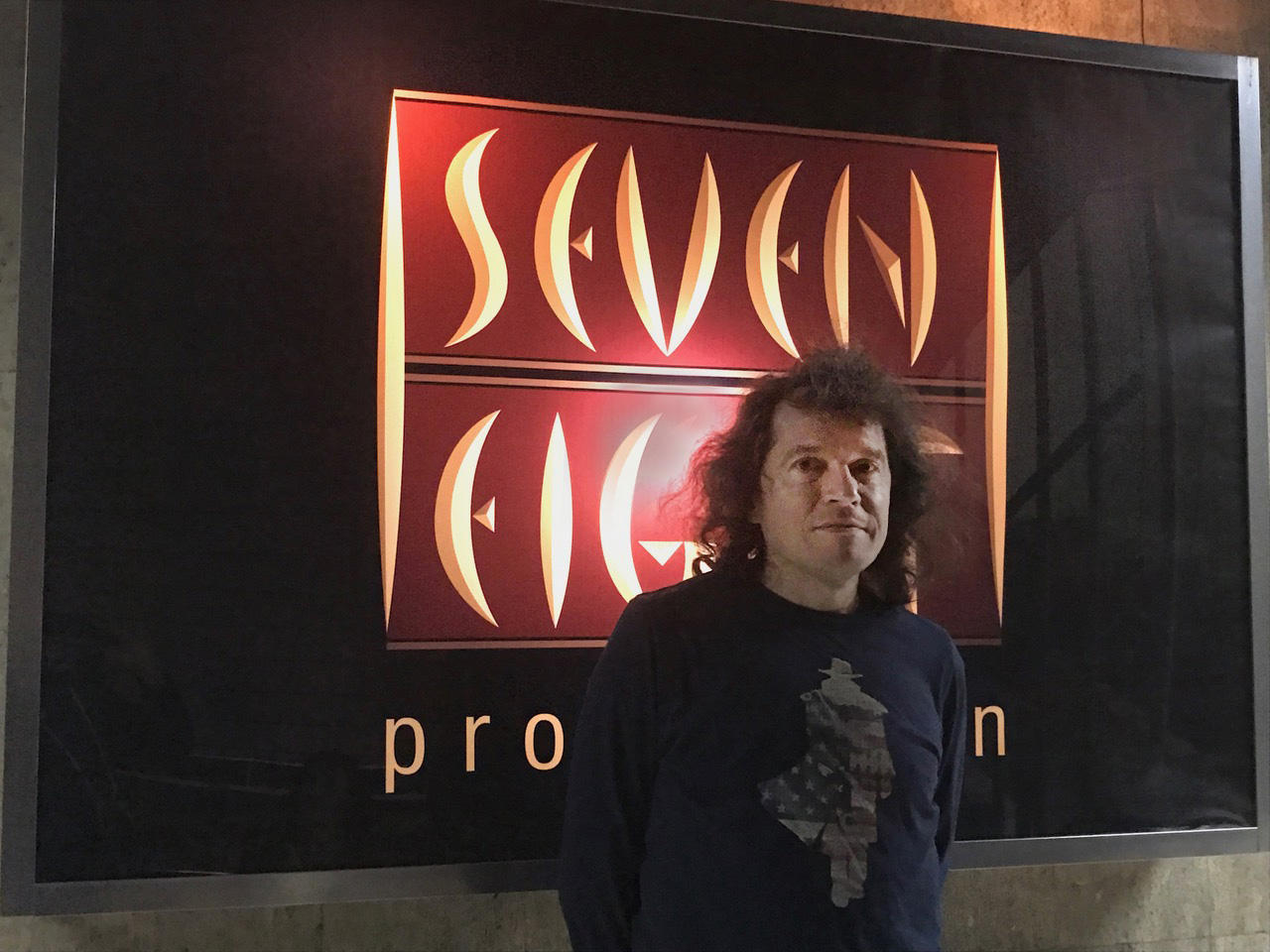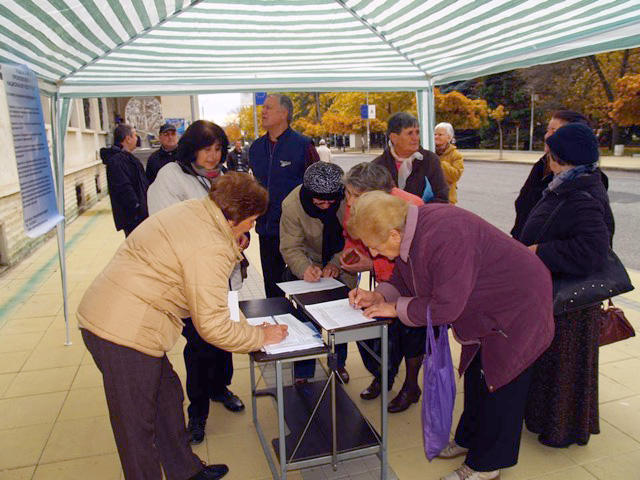
Bulgaria heads to polls in democratic first

Bulgarians will vote for the first time on three electoral initiatives on November 6. Years of collaboration with Switzerland helped pave the way for this democratic precedent.
The hideous grey complex I enter in downtown Sofia was built in 1981 in honour of Lyudmila Zhivkova, daughter of Todor Zhivkov, a dictator who reigned over the country for 30 years. The ghosts of this communist dinosaur still loom today, particularly in the dark, never-ending corridors where I take shelter from the rainy autumn day outside.
Suddenly a heavy wooden door opens and a short man with long, curly hair appears in the corridor. “Welcome to the Slavi show,” Hadzhi Toshko Yordanov says, inviting me into his office. “This is where we organised the biggest collection of signatures in the history of Bulgaria,” he adds grandly.
The Slavi show is a Bulgarian take-off of American late night talk shows. Launched at the turn of the century, it focuses on current affairs and can attract up to a million and a half viewers on a good night, making it the country’s most popular show. In a few months, the people behind the show gathered over 700,000 signatures for their reform proposals. “We want more democracy and less corruption,” says Yordanov, one of the show’s producers.
As well as choosing a new president on November 6, voters will also decide on the introduction of a majority election system, obligatory voting and party finance reformExternal link.
Also seated with us in Yordanov’s spacious office is Slaveya Hristova, head of Balkan AssistExternal link, a think tank that for decades has fought to strengthen democratic structures. Bulgaria’s seven million inhabitants now stand to benefit from the efforts.

It’s the first time that the people can vote on initiatives that we’ve launched,” she says, before admitting, however, that they “still have a long way to go”.
After the fall of the Iron Curtain, Hristova obtained a grant for postgraduate study in Switzerland, where she discovered “how a society can function where suspicion is not everywhere”.
During her time in Switzerland 20 years ago she was particularly fascinated by direct democracy. “It’s really innovative.” She has since collaborated with various Swiss organisations to promote democracy back in her homeland. That included twinning with Swiss towns, the opening of a Sofia office of the Swiss Agency for Development and Cooperation. “During those years we worked intensively to introduce direct democracy in communes and at a national level.”
That office closed when Bulgaria joined the European Union in 2007. Later cooperation was through Switzerland’s European Cohesion Fund projects, including the participation of the Centre for Democracy Studies in Aarau.
Today, Bulgaria has one of the most progressive laws when it comes to political rights. A recent world ranking placed the country alongside Canada, Germany and Finland.
“We wouldn’t be where we are without our collaboration with Switzerland,” says Hristova. Nevertheless, she considers the Swiss example to be a “double-edged sword”, due to the two countries’ very different historical and economic circumstances. Bulgaria remains one of the poorest and most corrupt countries in the EU. “It saddens me when I see where Switzerland is in comparison.”
Indeed, Bulgaria’s communist past still lingers over the vote on November 6. The law governing voting for the presidential election violates ballot box secrecy. Polling offices automatically hand out lists for the presidential election. Citizens however must explicitly ask for ballot papers for initiatives.
But that’s not all: the three initiatives before voters on November 6 will only be valid if participation is over 50%. As a result, not voting will equate to a no.
In other words, whoever asks for a ballot paper will automatically be considered a supporter of reform. In Sofia, that shouldn’t be of much consequence. As a metropolis with over a million residents, voters can retain their relative anonymity. But small villages in the countryside are still under the thumb of local despots who don’t entirely appreciate citizens interfering in their affairs via the ballot box.
Adapted by Jessica Dacey

In compliance with the JTI standards
More: SWI swissinfo.ch certified by the Journalism Trust Initiative





























You can find an overview of ongoing debates with our journalists here . Please join us!
If you want to start a conversation about a topic raised in this article or want to report factual errors, email us at english@swissinfo.ch.